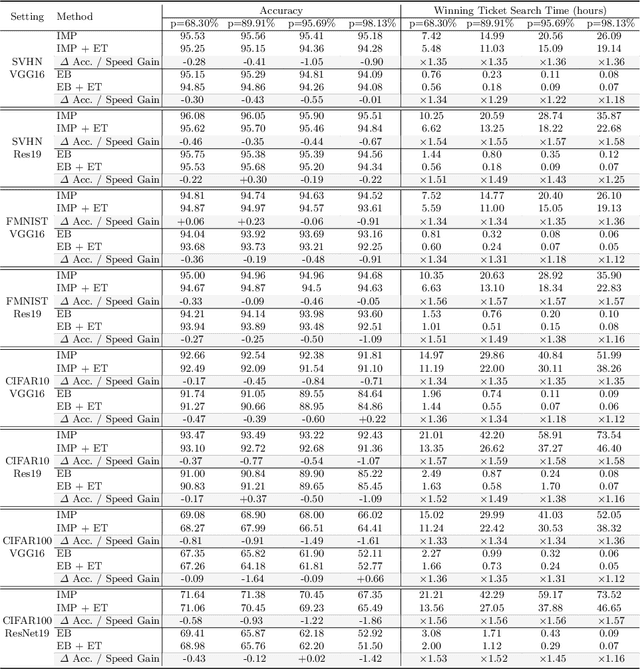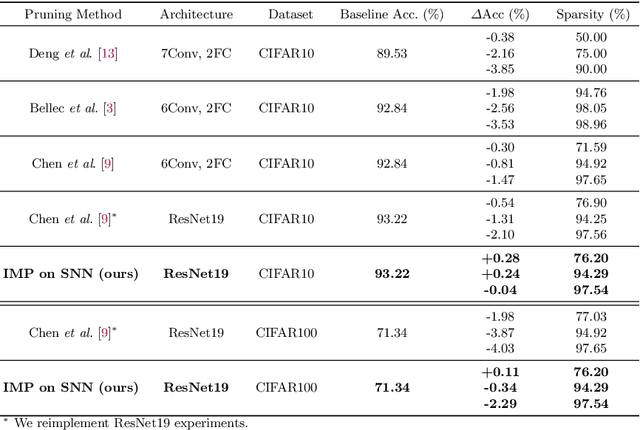Lottery Ticket Hypothesis for Spiking Neural Networks
Paper and Code
Jul 04, 2022



Spiking Neural Networks (SNNs) have recently emerged as a new generation of low-power deep neural networks where binary spikes convey information across multiple timesteps. Pruning for SNNs is highly important as they become deployed on a resource-constraint mobile/edge device. The previous SNN pruning works focus on shallow SNNs (2~6 layers), however, deeper SNNs (>16 layers) are proposed by state-of-the-art SNN works, which is difficult to be compatible with the current pruning work. To scale up a pruning technique toward deep SNNs, we investigate Lottery Ticket Hypothesis (LTH) which states that dense networks contain smaller subnetworks (i.e., winning tickets) that achieve comparable performance to the dense networks. Our studies on LTH reveal that the winning tickets consistently exist in deep SNNs across various datasets and architectures, providing up to 97% sparsity without huge performance degradation. However, the iterative searching process of LTH brings a huge training computational cost when combined with the multiple timesteps of SNNs. To alleviate such heavy searching cost, we propose Early-Time (ET) ticket where we find the important weight connectivity from a smaller number of timesteps. The proposed ET ticket can be seamlessly combined with common pruning techniques for finding winning tickets, such as Iterative Magnitude Pruning (IMP) and Early-Bird (EB) tickets. Our experiment results show that the proposed ET ticket reduces search time by up to 38% compared to IMP or EB methods.
 Add to Chrome
Add to Chrome Add to Firefox
Add to Firefox Add to Edge
Add to Edge